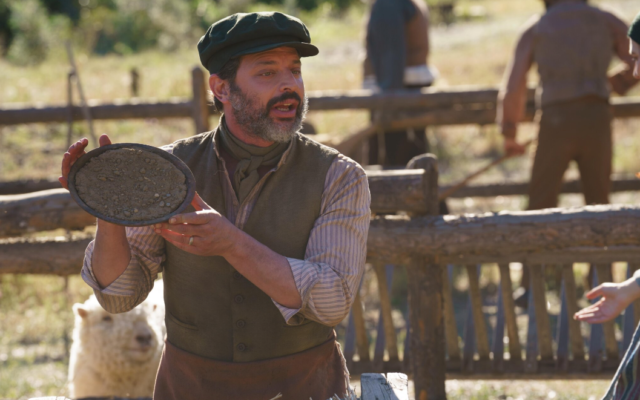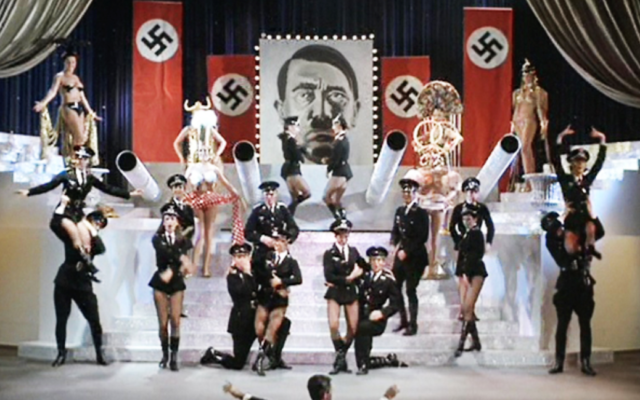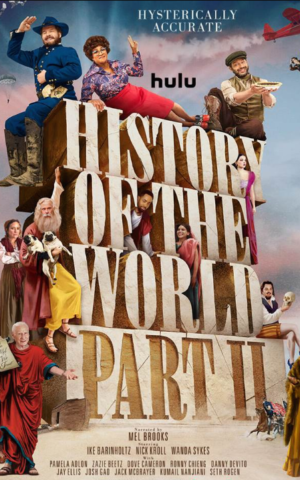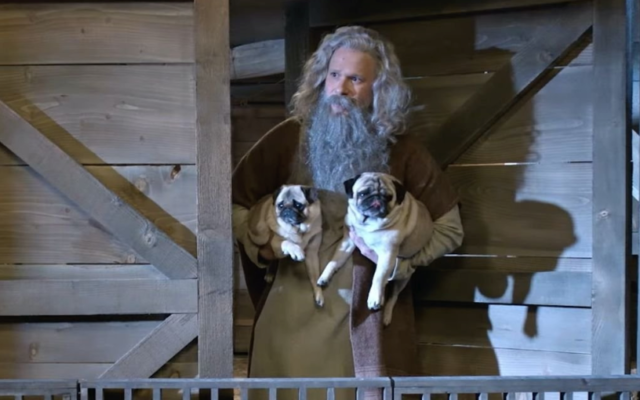At 97, Mel Brooks is Back with More Laughs
His new series on Hulu, “History of The World Part II” opened earlier in March.
In just three months, Mel Brooks, the comedic master of such film classics as “Young Frankenstein,” the television series “Get Smart,” and the iconic “2000 Year Old Man” will turn 97. At an age when most of his contemporaries are living out their final years in nursing homes, Mel Brooks is still making us laugh.
His latest project, “History of the World Part II,” has debuted as an eight-part series on Hulu, the Disney-owned streaming service. Many of those who worked on the production were either small children or hadn’t been born when his 1981 film, “History of the World Part I,” opened 42 years ago. In that feature film, he not only wrote, produced, and directed, but also took on five roles that spoofed key moments in history.

In the latest production, he’s listed as a writer, producer, and narrator, but has Nick Kroll, Ike Barinholtz, Wanda Sykes, and David Stassen to help with the heavy lifting. All are proven talents in Hollywood’s comedy world and, in addition, to their production roles they are also performers. Barinholtz, for example, is the Civil War General Ulysses Grant, the inventor Alexander Graham Bell, President Theodore Roosevelt, and Leon Trotsky, the Soviet revolutionary.
Sykes makes multiple appearances in a number of the episodes as well. She’s particularly effective as the Black Congresswoman Shirley Chisholm in a send-up of 1970s TV sitcoms. She’s also Harriet Tubman, the 19th century anti-slavery activist and Bessie Coleman, a pioneering black aviatrix who partners with Amelia Earhart, another early female aviator played by Hannah Einbinder, to establish a lesbian bar.

What would a Brooks production be without a send-up of character like an Eastern European shtetl family led by its Tevye-like patriarch, Shmuck Mudman. There, a bumbling Noah who fills his ark only with breeds of small dogs and, during the Oslo Middle East Peace Accords, Jews and Arabs argue over who first invented hummus.
If it all sounds like clever but mildly offensive and occasionally tasteless fun, it is. Critics have generally given it a thumbs up for its inventive silliness and it has been popular with viewers. For Brooks’ more daring ventures into social and historical satire, you’ll have to look to his earlier hits. There are, for example, the flatulent cowboys of “Blazing Saddles” who suffer from digestive discomfort as they sit around the campfire enjoying their dinner of beans. It is a comedic assault on Hollywood myth makers that is both hilarious and hilarious and astonishing at one time.
Even more daring was Brooks’ 1967 film, “The Producers,” starring Zero Mostel and Gene Wilder as a Broadway producer and his accountant who deliberately set out to create a stage musical that flops. The production, “Springtime For Hitler,” subtitled “A Gay Romp with Adolf and Eva at Berchtesgaren,” has production numbers celebrating the Third Reich.

The plan is to oversell the production to investors and after disastrous opening night reviews, the two can take the money they’ve raised and escape to Brazil. Instead, the play, with its lavish but politically provocative musical numbers and a coyly buffoonish Hitler, is an unexpected smash hit.
It took years for film goers to fully accept Brooks’ premise that the best way to confront Hitler was to laugh in his face. Filmmakers in Hollywood have been cautious about satirizing Hitler.
There were exceptions like Chaplin’s 1940s hit “The Great Dictator,” and Jack Benny and Ernst Lubitsch’s 1942 masterful “To Be or Not To Be,” which was shown in a retrospective screening at a recent Atlanta Jewish Film Festival. But there had never been anything like “The Producers.”
As time passed, the critical response to Brooks’ ‘Producers’ softened and, in 1996, it was selected for the National Film Registry by the Library of Congress. It is ranked 11th on the American Film Institute’s 100 Best Comedies of All Time.
To come full circle, Brooks teamed up with playwright Thomas Meehan in 2001 to create “The Producers” as a hit musical that received a dozen Tony Awards. That production was re-adapted into a 2005 film version that failed at the box office.
For all of his achievements, Brooks was awarded the National Medal of Arts by President Obama at the White House in 2016.
His record of accomplishments over his long career that began as a writer for the early television comedian, Sid Caesar, in the 1950s is equaled perhaps only by Norman Lear. Lear, the TV sitcom genius, turned 100 last July.
As “History of the World Part II” demonstrates, Brooks has remained successful even in old age, because he continues to think like a kid — an often irreverent, iconoclastic youngster who has never grown up.
- Arts and Culture
- Opinion
- Bob Bahr
- Mel Brooks
- Young Frankenstein
- Get Smart
- 2000 Year Old Man
- History of the World Part II
- Nick Kroll
- Ike Barinholtz
- Wanda Sykes
- David Stassen
- Civil War General Ulysses Grant
- Alexander Graham Bell
- Leon Trotsky
- Theodore Roosevelt
- Shirley Chisholm
- Harriet Tubman
- Bessie Coleman
- Hannah Einbinder
- Shmuck Mudman
- Oslo Middle East Peace Accords
- Blazing Saddles
- The Producers
- Zero Mostel
- Gene Wilder
- Springtime For Hitler
- A Gay Romp with Adolf and Eva at Berchtesgaren
- The Great Dictator
- Jack Benny and Ernst Lubitsch
- National Film Registry
- Library of Congress
- Sid Caesar
- Norman Lear




comments